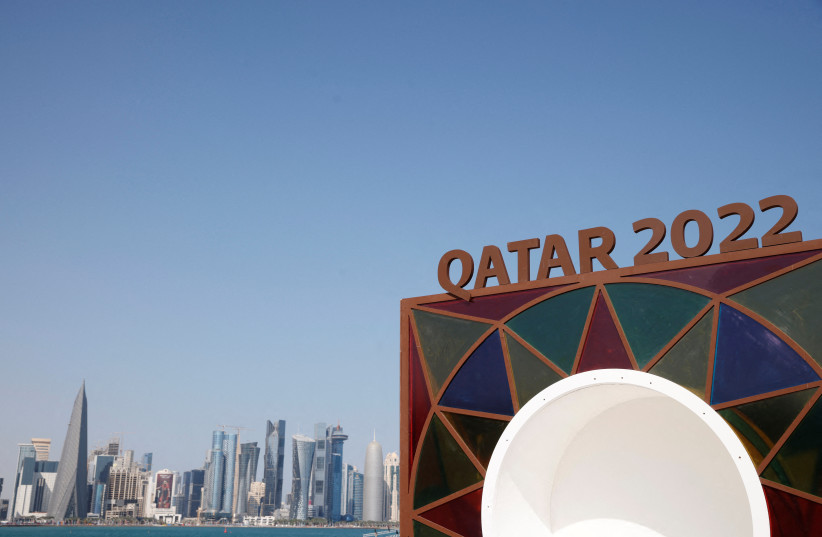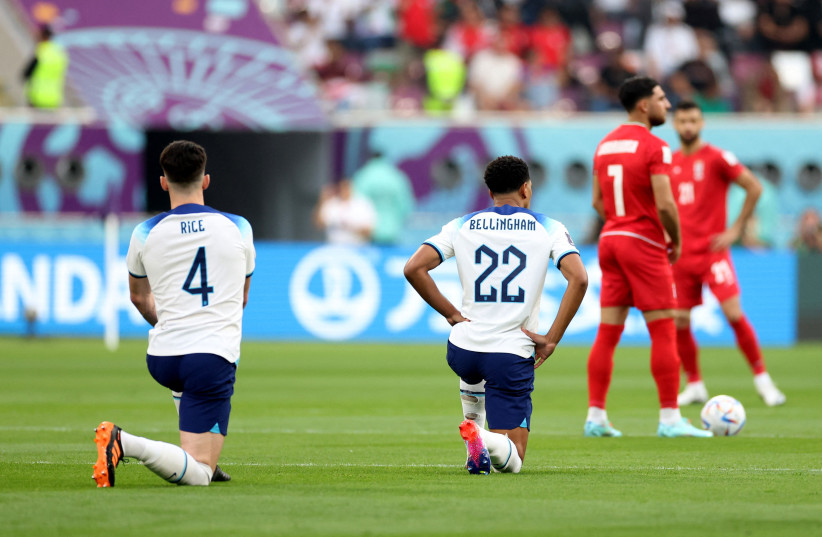The 2022 FIFA World Cup kicked off on Sunday in Qatar amid plenty of controversy and international scrutiny surrounding the host's questionable human rights record, especially the country's treatment of foreign workers and LGBTQֹֹּּּ+ rights.
The Muslim-majority Gulf country infamously banned alcoholic drinks from being sold at World Cup stadiums in a last-minute decision that drew ire from fans around the world that had traveled to Qatar to watch the matches.
Soccer fans, who were told by Qatari and FIFA officials to 'respect local rules and customs,' raised concerns over Qatar's ability to fulfill its promises to visiting fans on "accommodation, transport or cultural issues."
Qatar's tournament organizers have said in the lead-up to the World Cup that alcohol would be widely accessible to fans at the tournament. However, the ban from stadiums means the only place supporters can legally obtain alcoholic drinks is at the official World Cup Fanzone.
However, 'no beer' is not the only local law travelers to Qatar will have to adhere to in the conservative Muslim state.

What else is banned in Qatar?
Perhaps the most shocking infringement of human rights in Qatar is its treatment of LGBTQ+ individuals, with homosexuality being illegal and punishable by law. An LGBTQ+ individual can be sentenced to up to five years in prison in Qatar for homosexual acts.
Qatari organizers of the World Cup have also warned visitors against public displays of affection but say that everyone, no matter their sexual orientation or background, is welcome at the event.
Rainbow flags, shirts and armbands banned by Qatar
FIFA and Qatar have both made unprecedented efforts to stop nations from expressing public support for the LGBTQ+ community. The soccer federations of England, Wales, Belgium, the Netherlands, Switzerland, Germany and Denmark all backed down on Monday from a plan to have their captains wear the 'One Love' armband during World Cup matches in protests of the treatment of the LGBTQ+ community in Qatar.
The national associations backtracked after FIFA warned them that wearing the multi-colored armband, whose design does not explicitly state support for the gay community, would result in the yellow-carding of players, a sporting punishment described by the German soccer association (DFB) as "extreme blackmail."
One US journalist also reported that he was briefly detained on Monday when attempting to enter a World Cup stadium while wearing a rainbow shirt. He said his phone was taken away when he tweeted about the incident.
In another bizarre decision by soccer's world governing body, the Belgian national team's away kit was rejected because the word "love," combined with a rainbow-colored trim on the shirt, was stitched onto the collar. FIFA said that if the word 'love' is removed, Belgium would be allowed to wear the shirt during the tournament.

Qatar bans non-halal, Kosher foods
The Muslim nation also banned the public carrying of all pork-based products, in keeping with the nationwide ban on non-halal foods.
Furthermore, despite previous promises made to Jewish organizations, it was revealed by The Jerusalem Post earlier this week that Qatar won’t allow any cooked kosher food to be sold or offered to visitors.
Sources in Jewish organizations further told the Post that Qatar broke another promise to allow Jewish prayer services in Doha during the games, claiming it couldn’t secure this type of activity and then banned it completely.
Reuters contributed to this report.
